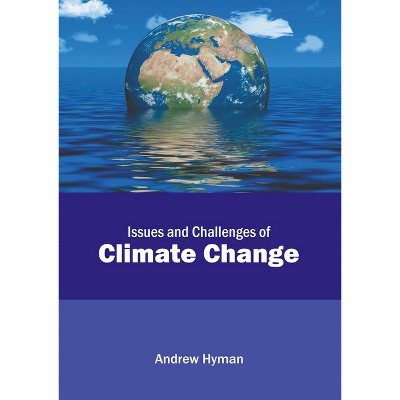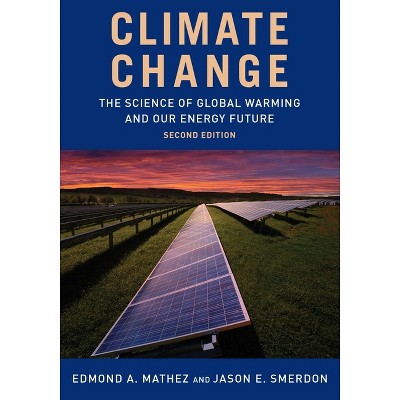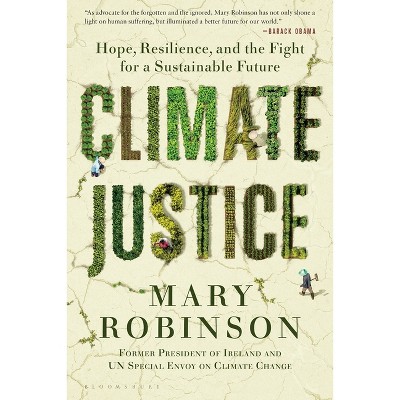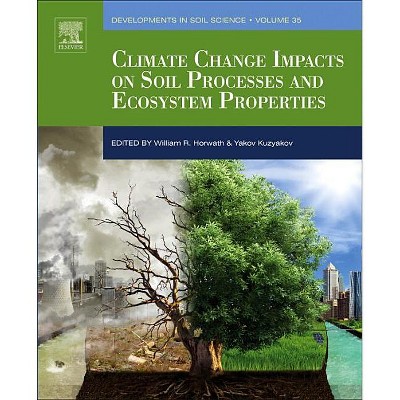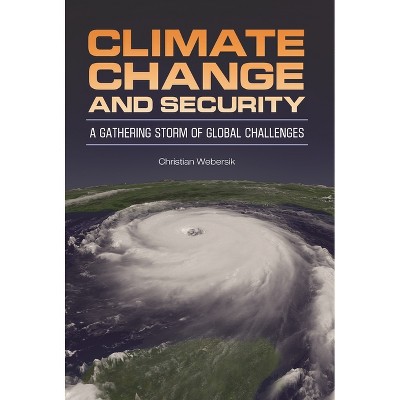Sponsored

Climate Terror - (New Security Challenges) by Sanjay Chaturvedi
In Stock
Sponsored
About this item
Highlights
- Climate Terror engages with a highly differentiated geographical politics of global warming.
- About the Author: Professor Timothy Doyle is Chair of Politics and International Studies at the University of Adelaide, South Australia; Distinguished Research Fellow of Indian Ocean Futures at Curtin University, Western Australia; and Chair of Politics and International Relations at Keele University, Staffordshire, United Kingdom.
- 247 Pages
- Science, Environmental Science
- Series Name: New Security Challenges
Description
About the Book
"Climate Terror investigates the highly differentiated geographical politics of global warming. It explores how fear-inducing climate change discourses could result in new forms of dependencies, domination and militarised 'climate security'. In this revealing study from Doyle and Chaturvedi, the concept of environmental security is brought to life through cases of the most pressing environmental issues confronting the Global South, which are creating desperate realities for billions of people. The book proposes the following key questions, crucial to our understanding of this issue: Can the climate discourse be re-configured to provide a place where issues of environmental justice and sovereignty are paramount, rather than neo-liberal responses to climate? Can climate change give a voice to the global periphery, and can it be used as a vehicle for emancipation? Doyle and Chaturvedi's study concludes by taking note of the more optimistic response of 'emancipatory' groups and networks to concepts such as climate justice and climate debt, and the ways in which these groups have attempted to use this global climate moment for more democratic purposes. Is the climate story, regardless of its diverse intentions, a discourse now captured by the affluent North to control the development of the Global South? Has the emancipatory moment now passed or is there still hope for the re-emergence of subaltern perspectives on climate futures? The authors further discuss the deployment of terror vocabulary to address climate change, which is a part of refurbished designs and technologies of control, regulation and domination in a neo-liberal, post-political globalised world marked by profound asymmetries in terms of economic growth and human development. They argue for an increased understanding of the environment, not as an external enemy force, but as a diverse nature that is inclusive of people, a nature that has the potential to provide secure access to citizens of all countries to basic nutrition, adequate access to health, appropriate shelter, and a security to practice a diverse range of livelihoods. "--Book Synopsis
Climate Terror engages with a highly differentiated geographical politics of global warming. It explores how fear-inducing climate change discourses could result in new forms of dependencies, domination and militarised 'climate security'.Review Quotes
"This well-documented work makes the implicit argument that the science and mainstream policies of global climate change, and indeed their critiques, have tended to focus upon the perceptual frameworks of the north rather than south, and in so doing, have to a degree diverted attention away from more immediate north-south social, political, and economic inequities. ... Summing Up: Highly recommended. Graduate, research, and professional collections." (C. W. Herrick, Choice, Vol. 53 (5), January, 2016)
"It offers an invaluable contribution because it combines and fully develops a number of important critical angles - there are not many books doing that, if any at all. ... The book will represent an important resource for critical scholars approaching the field of climate politics, as well as a necessary starting point for those working on and towards decolonized and progressive climate politics." (Giovanni Bettini, Progress in Human Geography, January, 2017)
About the Author
Professor Timothy Doyle is Chair of Politics and International Studies at the University of Adelaide, South Australia; Distinguished Research Fellow of Indian Ocean Futures at Curtin University, Western Australia; and Chair of Politics and International Relations at Keele University, Staffordshire, United Kingdom. He is Co-Director of the Indo-Pacific Governance Research Centre at Adelaide (IPGRC) and Director of Human and Environmental Security for the Indian Ocean Research Group (IORG) in Perth and Chandigarh. Sanjay Chaturvedi is Professor of Political Science at Centre for the Study of Geopolitics, Panjab University, India. He is also the Honorary Director of Centre for the Study of Mid-West and Central Asia, Panjab University, and Founding Vice-Chairman of Indian Ocean Research Group (IORG). He has been a Third Cohort Fellow of India-China Institute, The New School, New York.Shipping details
Return details
Frequently bought together


Trending Non-Fiction










